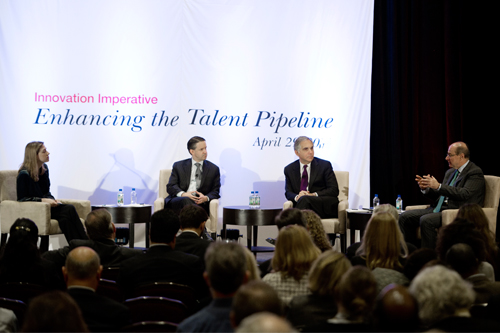Projects
The Center’s foundational projects are focused on critical issues at the intersection of higher education and talent strategy, such as:
- The future of educational credentials and their value and use in the workplace
- New models of partnership and curricular collaboration between colleges and employers
- Work-based experiential learning
- The evolution of corporate talent strategy – including learning and development, hiring and recruiting, and the emergence of people analytics
- The convergence of skills-based hiring and competency-based education
Projects
The Impact of AI on Hiring and Talent Management: AI As Collaborator, Agent, and Revolutionary
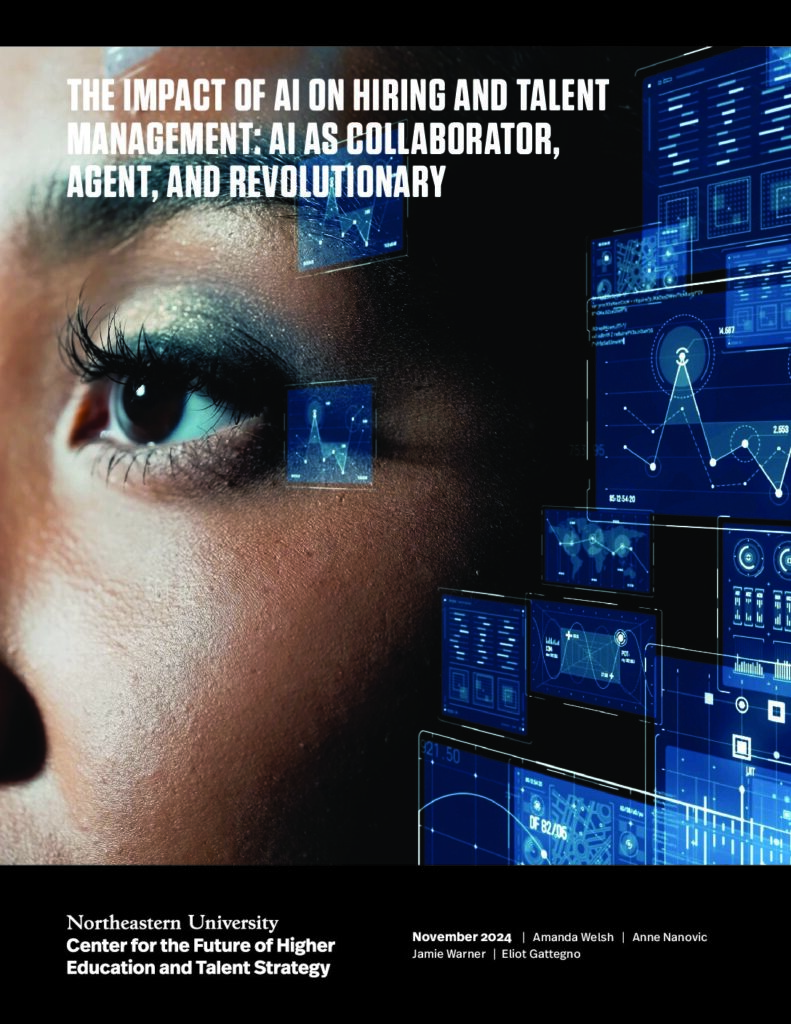
Current and potential applications of AI in HR practices, with special attention given to the changing demands on HR professionals, the new challenges confronting educators, and AI’s impact on data equity and potential bias.
Please join us for a series of conversations inspired by our recently published report.
Please click on the links below to access recordings.
Fernando Rodriguez-Villa shares how AdeptID’s talent-matching software manages these challenges, and talks testing, accountability, and the performance questions that HR leaders should be asking of their AI providers and applications.
As Head of Strategy and Principal Analyst at Aptitude Research, Kyle Lagunas brings a holistic perspective to how the application of AI in talent management is impacting the role of HR.
Jeff Schwartz, VP of Insights and Impact at Gloat, shares insights on the future of the workforce and paints a picture of how AI will transform talent management as we know it.
Bringing Richer, Verifiable Candidate Data Into HR Systems: An Ecosystem Roadmap
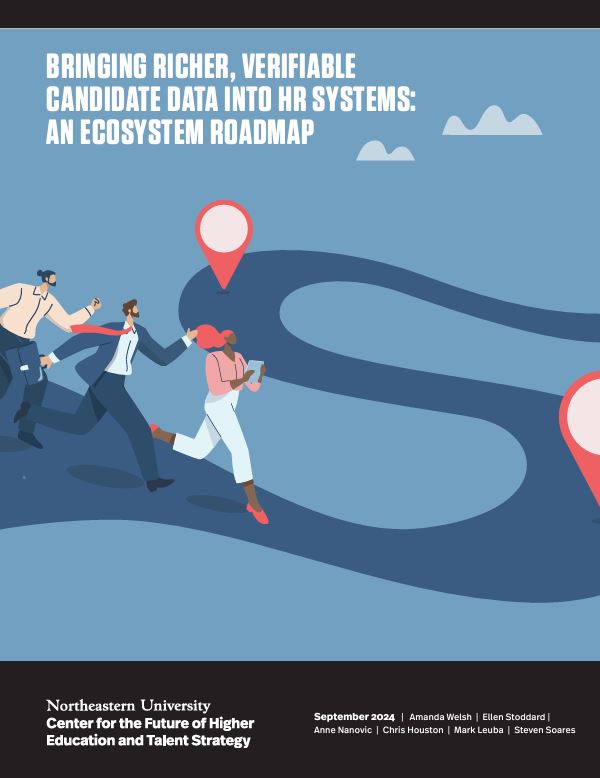
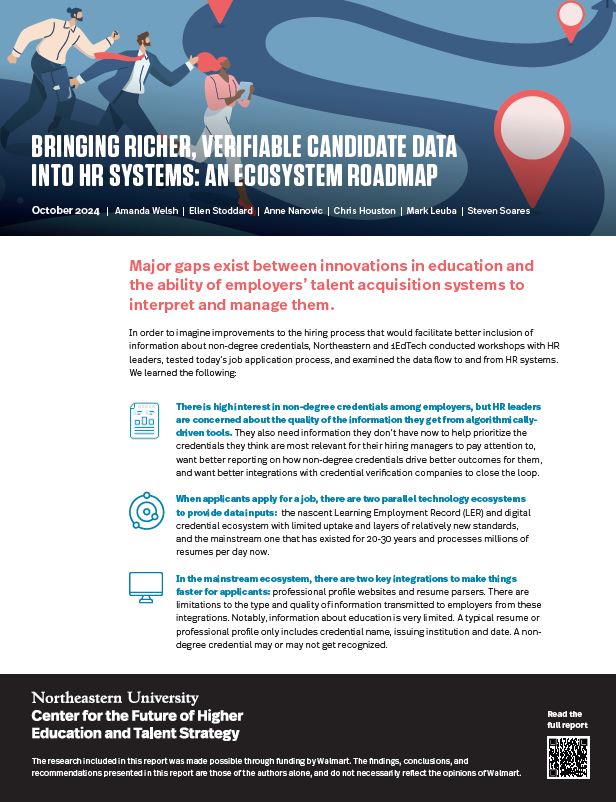
A proposal for fostering better alignment between EdTech and HR tech that ensures that digital credentials and skills functionality can be more effectively prioritized in hiring and talent management decision-making.
The Evolution Of Hiring: What Managers Know About, Think About And Are Doing With Microcredentials
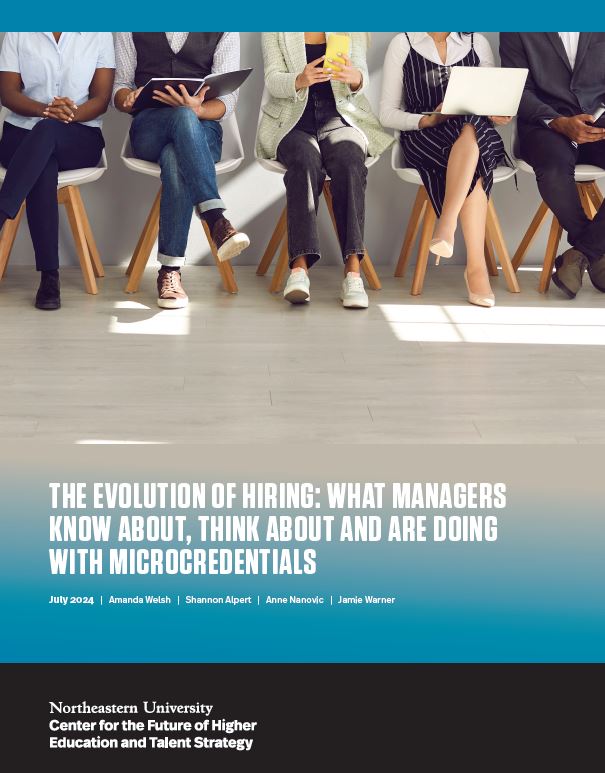
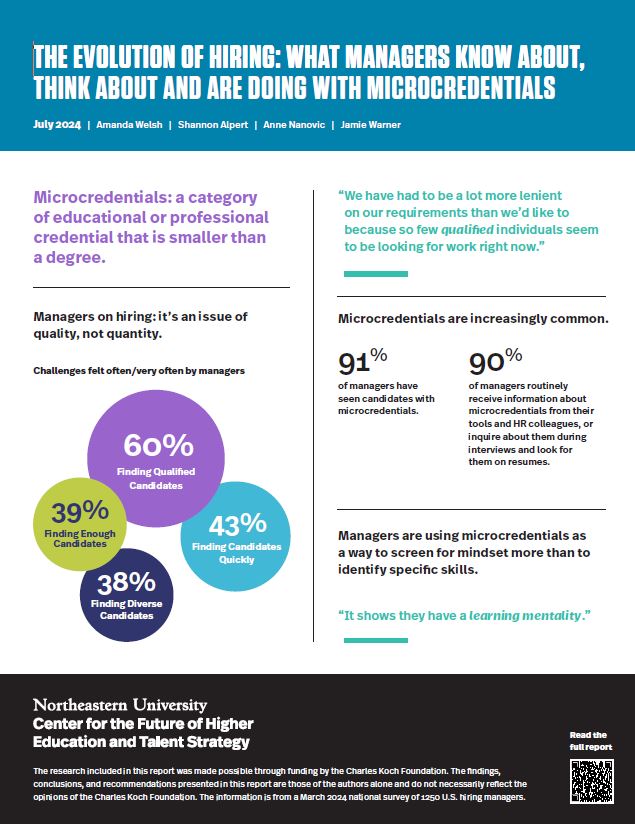
Analysis of survey data examining how managers perceive microcredentials and how company leaders can support more effective use of them in hiring.
The Evolution of Hiring: Small Businesses and Microcredentials
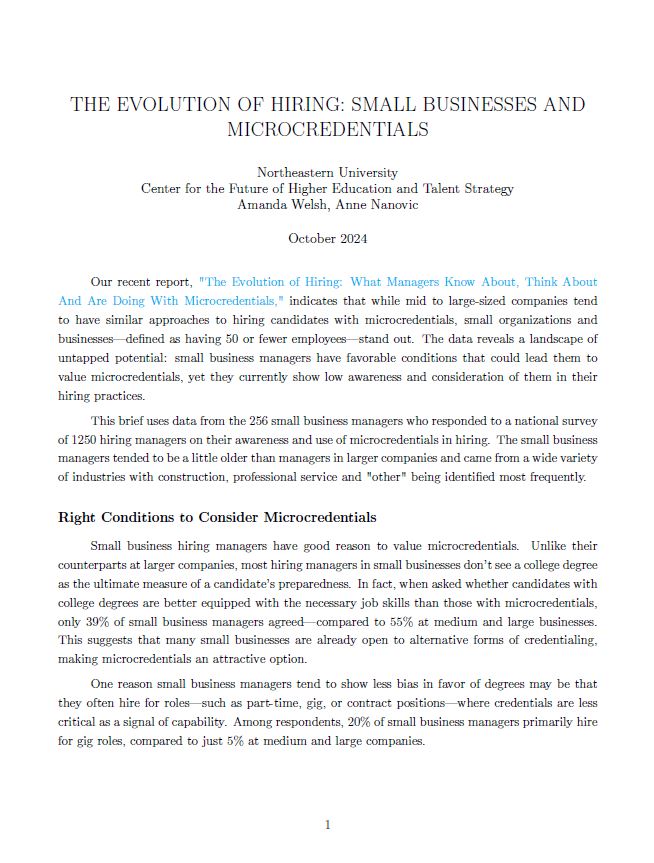
A closer look at how managers at small organizations differ in their attitudes, awareness, and adoption of microcredentials and how they are uniquely positioned to benefit from their use in hiring.
Getting Started with Microcredentials: A Primer for Higher Education Leaders
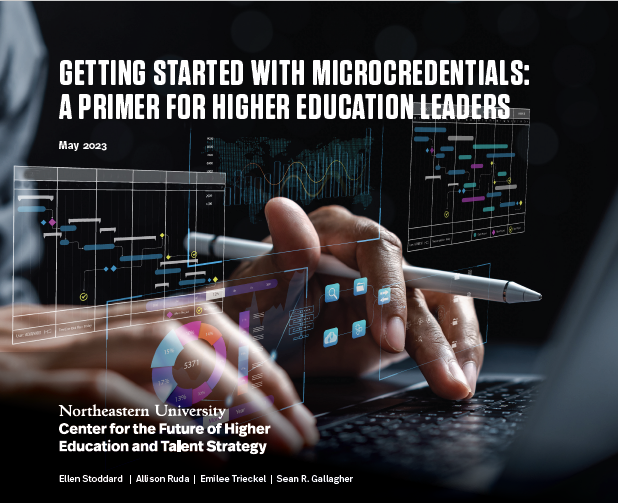
A high-level strategic primer for deans, provosts, and other senior higher education administrators and academic leaders who are considering the case for microcredentials and looking to get started in offering them.
Microcredentials: An Introduction for the Talent Leaders
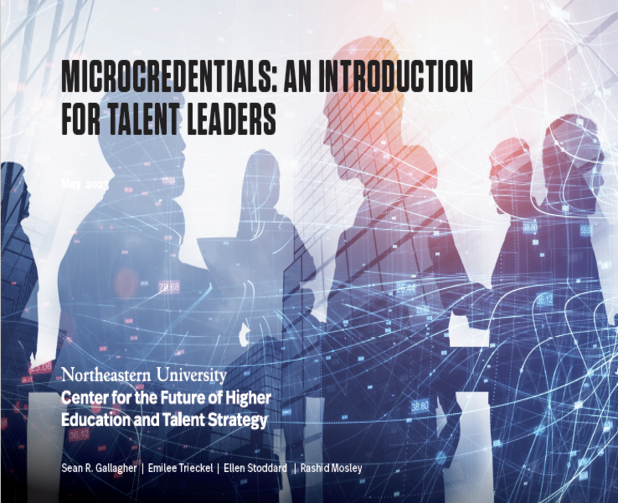
This executive summary for talent leaders provides a brief introduction to micro-credentials, synthesizing recent research, salient insights, and crucial data from the marketplace.
Understanding the Emerging SkillsTech Landscape
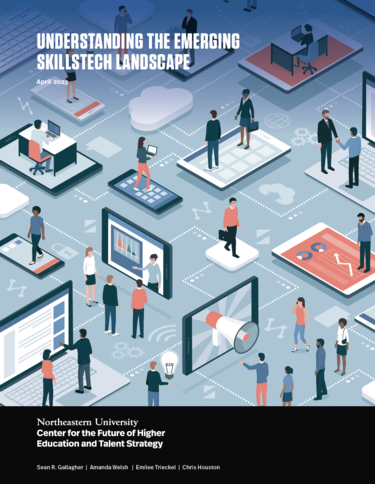
This report defines the emerging “skillstech” landscape, discusses how it is evolving, and identifies key issues for interested stakeholders to consider. The analysis is based on extensive secondary research and primary interviews and demos with skillstech providers and other industry leaders.
Digital Credentials and Talent Acquisition Tech: Closing the Data Gap Between Learning and Hiring
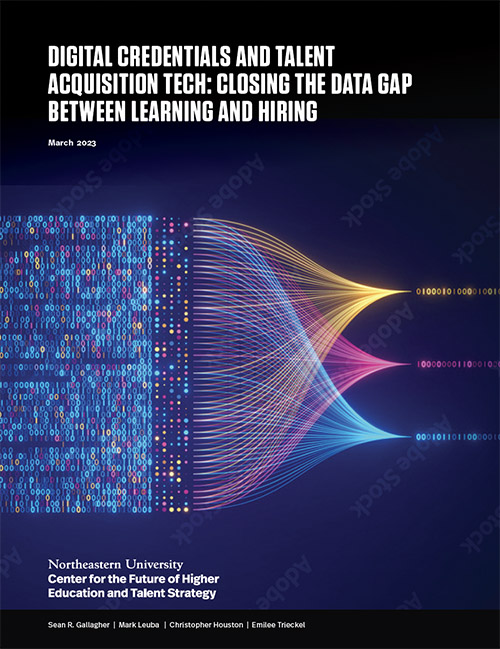
A first-of-its-kind analysis exploring how HR talent acquisition systems handle educational credentials and skills data. Based on interviews and demos with key talent acquisition technology providers and a review of APIs, this report aims to provide a roadmap for closing the data gap between Edtech and HRtech systems.
Human Capital Measurement and Reporting: The New Frontier in Talent Strategy and ESG
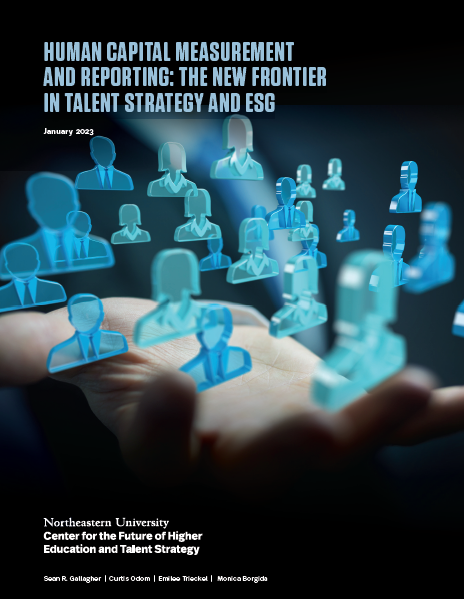
This report analyzes the current state of human capital measurement and reporting and builds the case for greater attention to this subject. Additionally, it focuses on identifying gaps and opportunities for action among employers and other stakeholders in the field, with a focus on how new ESG investing dynamics are converging with human resources capabilities.
Employers’ Post-COVID Business Strategy and the Race for Talent: A View From the C-Suite
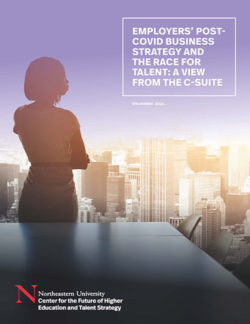
A national survey of 1,000 c-suite executives illuminates how the unprecedented changes brought on by COVID-19 coupled with the digital transformation of the economy are impacting organizations’ business strategies, with a particular focus on talent and learning.
Digital Credentials & Competency Frameworks: Exploring Employer Readiness and Use in Talent Management
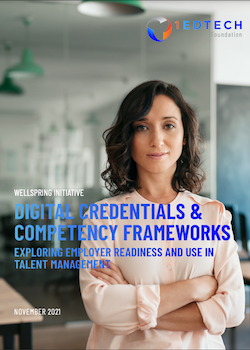
This national survey of 750 HR leaders conducted in 2021 builds on the center’s prior work, and analyzes employers’ readiness for and interest in using digital credentials and competency frameworks in hiring and talent management.
The New Landscape for Workplace Learning: Employers and Workers Managing the Digital Transition
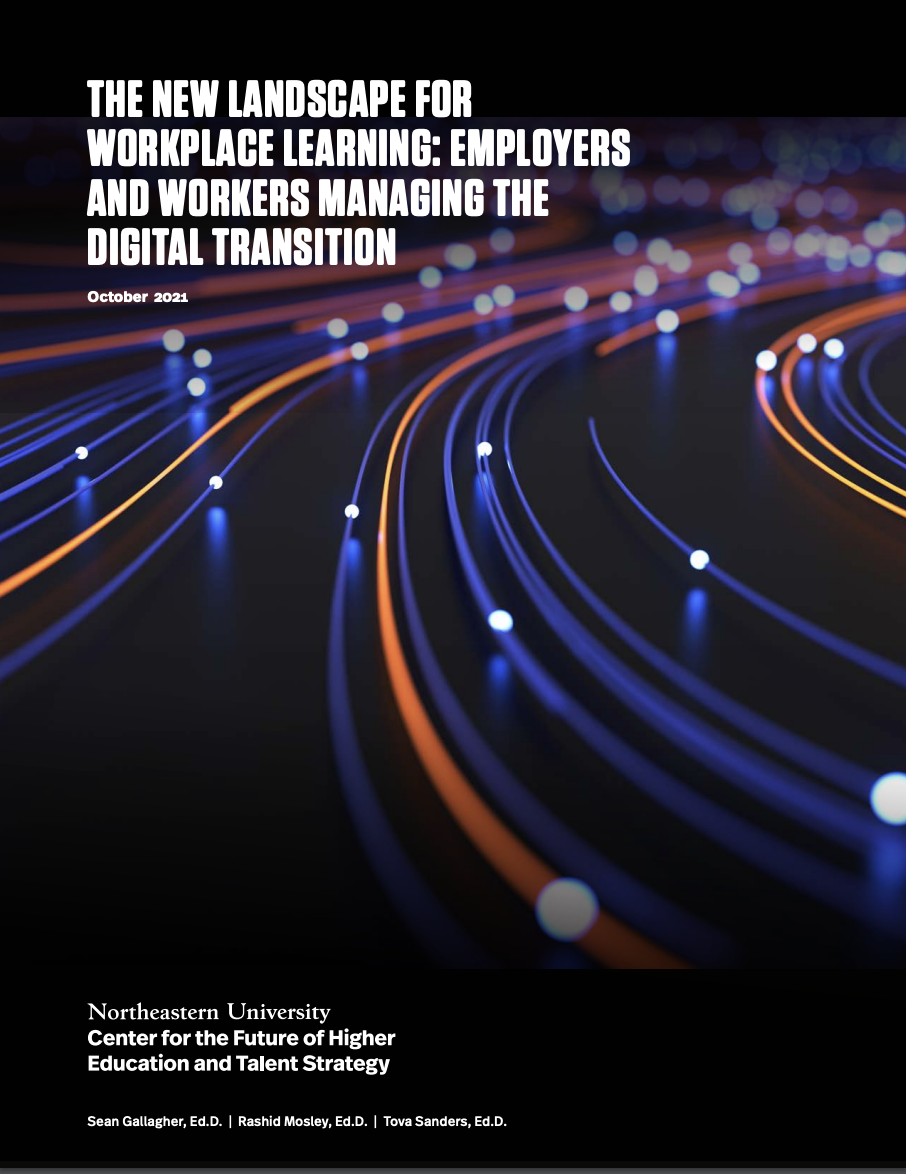
This report explores employers’ attitudes toward and investments in employee learning, and how they are evolving. Based on qualitative interviews with nearly 40 HR and learning leaders, the analysis paints a picture of current trends in workplace learning after the emergence of COVID-19.
Credentials for a New Era of Work and Learning
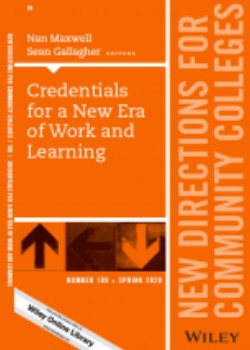
A journal volume outlining the ways that community colleges can take advantage of the evolving credential market.
Designing and Implementing Work-based Learning
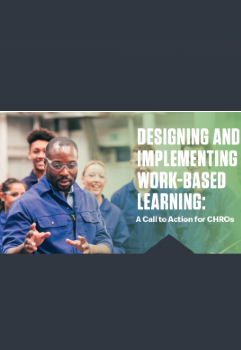
This executive summary (“A Call to Action for CHROs”) provides an analysis of the latest developments and best practices in the work-based learning field, with particular attention to the corporate case for improving, scaling, resourcing, and measuring the success of these models. Produced in partnership with the Business-Higher Education Forum (BHEF) and NORC at the University of Chicago (NORC), and supported by a grant from the National Science Foundation (NSF).
Online Education in 2019: A Synthesis of the Data

This report reviews and synthesizes the latest research to provide a high-level overview of the current state of the online education market – including its size and character; the characteristics of online students; what is known about the quality of online educational outcomes; and the perspectives of employers, among other key dynamics.
Educational Credentials Come of Age: A Survey on the Use and Value of Educational Credentials in Hiring

This unique national research survey of 750 HR leaders focuses on the future of educational credentials and their value and use in the workplace. The study provides new insights on the changing value of educational credentials in hiring; the perception of online- and micro-credentials; how employers determine quality; and the emergence of talent analytics and skills-based hiring, among other topics.
EQUIP

In 2016, Northeastern University was one of only eight universities chosen for the U.S. Department of Education’s Educational Quality through Innovative Partnerships (EQUIP) experimental sites initiative, which aims to provide more Americans with the skills required for the 21st century.
EQUIP will increase students’ access to innovative, high-quality, postsecondary education and spur innovative collaborations between universities and non-traditional education providers. Northeastern’s EQUIP project is in partnership with General Electric (GE) and the American Council on Education.
Innovation Imperative Series
Northeastern University’s Innovation Imperative series has provided a real-time window into Americans’ attitudes on key issues affecting higher education and the global economy. Whether examining the emerging views of Generation Z or determining the in-demand skills sought by hiring decision makers, the thought leadership series is helping shape the national conversation and drive policy reform.
The Center will continue this work by studying and building innovative new models of employer-engaged higher education.
The Future of University Credentials
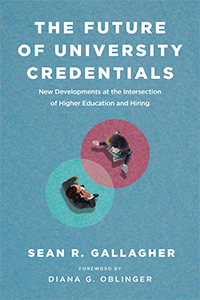
Executive Director Sean Gallagher’s 2016 book, The Future of University Credentials, published by Harvard Education Press, explores the evolution of the university credentialing ecosystem, with a particular focus on how employers’ hiring needs are changing, charting an agenda for the future development of the higher education field.
Industry-embedded Hubs
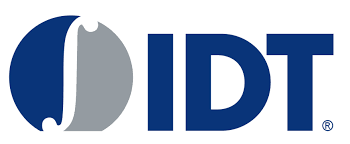
The future of higher education and corporate learning and development will involve greater use of experiential models that leverage the learning power of workplace-based experiences. Driven by extensive research on the needs of regional economies and corporate talent needs, Northeastern’s Silicon Valley campus is a living laboratory in partnership with Integrated Device Technologies, or IDT, representing a new model for technology-focused education
Co-development of Curriculum

Northeastern and the Center are pioneering the development and study of professionally-oriented higher education programs that are co-developed with employers, through both the EQUIP experimental site and numerous other corporate partnerships.
Experiential Learning as a Broad-based Talent Strategy

Project-based learning and capstone projects are a hallmark of the new forms of educational credentials emerging in the marketplace. Through initiatives such as the Experiential Network, or XN, Northeastern students earn more than just an education—they gain relevant, real-world skills and experience. Our signature experiential learning model combines academics with professional practice, allowing students to put their ideas into action and graduate with firsthand industry knowledge.
